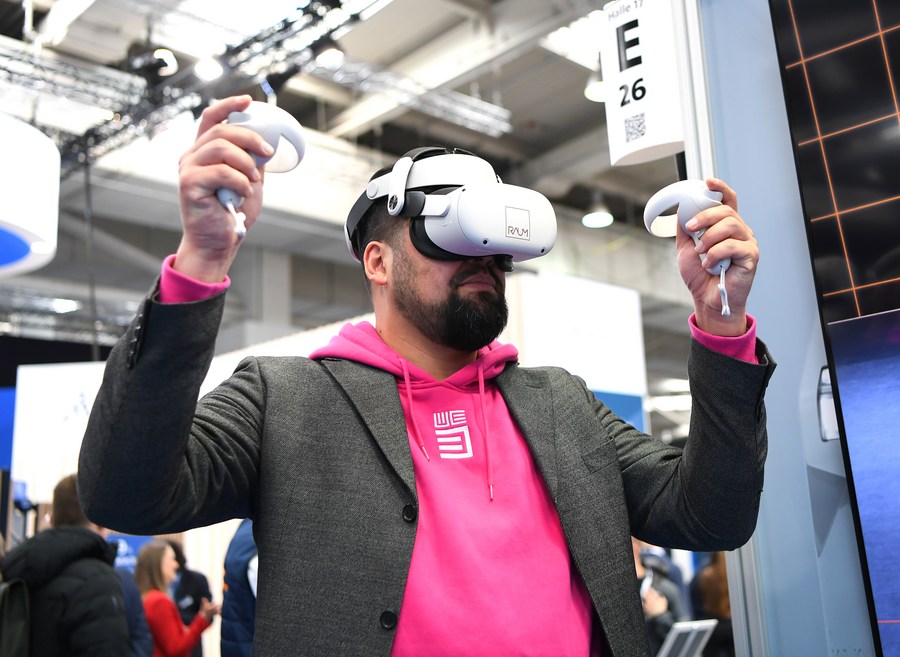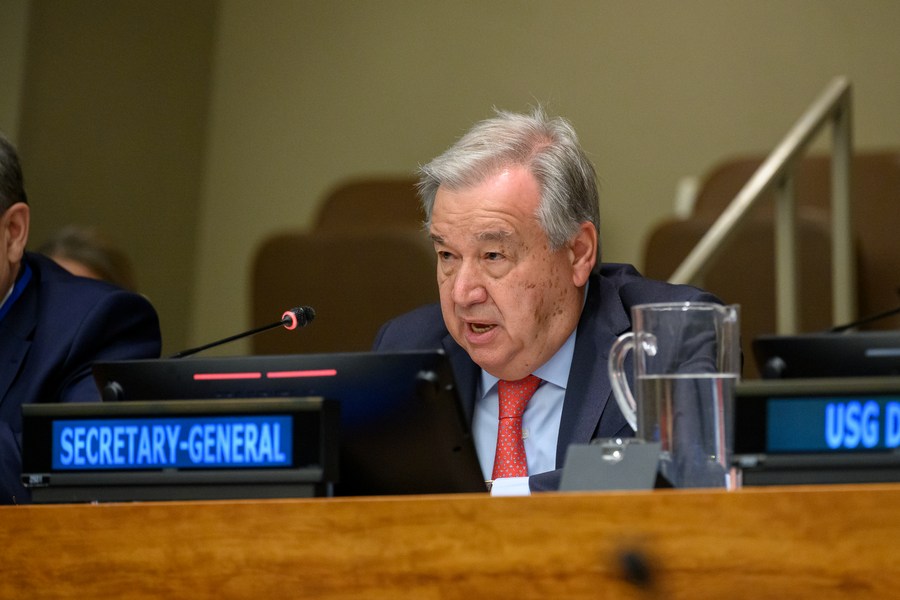UN Secretary-General Antonio Guterres speaks at the launch of three policy briefs under Our Common Agenda at the UN headquarters in New York, on June 5, 2023. (Loey Felipe/UN Photo/Handout via Xinhua)
“There is an urgent need for governments to come together in a Global Digital Compact to mitigate the risks of digital technologies and identify ways to harness their benefits for the good of humanity,” UN Secretary-General Antonio Guterres said.
UNITED NATIONS, June 5 (Xinhua) — UN Secretary-General Antonio Guterres on Monday proposed a Global Digital Compact to mitigate the risks of digital technologies.
“There is an urgent need for governments to come together in a Global Digital Compact to mitigate the risks of digital technologies and identify ways to harness their benefits for the good of humanity,” he told UN member states in a presentation of his policy brief.
Artificial intelligence (AI), deep fakes, and bio-engineering are just three areas of latest technological progress that are testing governance capacities beyond their limits. This exponential acceleration makes cooperation on technology even more important, he said.
Generative AI will have a huge impact on education, communication, the world of work and far more. But the future of that impact is not clear to anyone. Jobs will be both created and lost, and the world of work will change, he said.
While AI has the potential to turbocharge development and productivity, accelerating progress toward the Sustainable Development Goals (SDGs), it also presents serious ethical challenges. The weaponization of AI is a huge concern, he warned.
The prospect of further technological progress now often inspires fear rather than hope. Even those who have developed AI and stand to profit from it most have expressed deep concern and appealed — even pleaded — for action on governance, he said.
The policy brief proposes a vision for digital cooperation that puts humanity at the core, with no one left behind: a digital future that is anchored in universal human rights; global cooperation that harnesses technology for human development and turbocharges progress on the SDGs; digital technologies that are governed by humans, for humans, said Guterres.

A man tries on a VR headset during the Hannover Messe in Hannover, Germany, on April 18, 2023. (Xinhua/Ren Pengfei)
The policy brief also offers proposals on how this can be achieved. The Global Digital Compact is a unique opportunity to bring together governments, regional organizations, the private sector and civil society in a global approach to digital governance. National and regional approaches are simply not enough in a globalized world, he said. “The compact would provide a framework to align national, regional and industry approaches around global priorities, principles and objectives.”
The policy brief identifies areas for urgent action, from scaling up efforts to connect the unconnected, to building digital public infrastructure and supporting public administrations to regulate technology for everyone’s benefit.
The brief proposes steps to address gaps in the governance of AI. It reiterates Guterres’ proposal for a high-level advisory body for AI, which could meet regularly to review AI governance arrangements and offer recommendations on how they can be aligned with human rights, the rule of law and the common good.
“We will start work on this body by the end of this year, and task it to present options for the international governance of AI. This could include an AI Accord, connected to the Global Digital Compact process,” said Guterres.
The policy brief also focuses on the need for sustained follow-up on digital governance.

A visitor takes photos of an artwork recreated with digital technology during the 2022 China International Fair for Trade in Services in Beijing, capital of China, Sept. 2, 2022. (Xinhua/Li Xin)
The brief proposes a Digital Cooperation Forum that would evaluate progress on digital governance and highlight gaps.
“This would be the first global framework to bring all stakeholders together to drive aligned action on digital technology. It would work with regional bodies and multistakeholder networks, and support exchanges between existing bodies, such as the Internet Governance Forum,” he said.
On Monday, Guterres also presented policy briefs on reforms of the international financial architecture and on looking beyond gross domestic product as a metric for economic progress. ■
Credit:Source link



